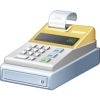Currency Comparison
Here's a simple chart showing the advantages of various currency types.
| Bitcoin | Dollar Bills | Debit Card | Bullion | Shire Silver | |
|---|---|---|---|---|---|
| Convenient | |||||
| Internet | |||||
| No electricity | |||||
| Decentralized | |||||
| Privacy | |||||
| Store of value |
Conclusion
As you can see from the chart, no one currency satisfies all the requirements we have. But it is readily apparent that if we choose two of them we can get everything we want.
If you like Shire Silver, by adding either a debit card or bitcoins you can cover everything.
If you like your debit card but want to have some transactions remain private, then you can use either bitcoins or Shire Silver for that.
If you like bitcoins, then using Shire Silver for physical transactions where the Internet isn't available makes sense.
Notes
Convenience
Of all the currency types out there, most are roughly equal in convenience. Bitcoins are usable from a typical smartphone and can use QR codes to make it easy, and improvements are happening all the time. People are used to using dollar bills and debit cards, so they can be seen as the baseline of convenience. Shire Silver is similar in convenience to dollar bills while being as easy to handle as debit cards. The one outcast here is traditional bullion, which is heavy and bulky.
Internet
Both debit cards and bitcoins require some sort of electronic infrastructure. This infrastructure has benefits as well as weaknesses. By allowing you to make transactions needing no change returned, electronically based currencies remove the need for change. On the other hand, requiring the infrastructure to be operational during transactions means that you might find some rare instances when the infrastructure is unusable.
Decentralized
Centralized systems have their own weaknesses, including the ability to be more easily manipulated by governments or other powerful organizations. Decentralized systems, like bitcoins and both types of bullion, are the future because they cannot be stopped and will route around attempts to block their usage.
Privacy
Corporations and governments want as much information on your transactions as they can get, whether its for better marketing or to make sure you aren't violating some regulation. But you do have a right to not have your every purchase recorded. Government issued currencies will probably always have some way of tracking and/or recording your transactions; but more market friendly currencies understand the value of being able to maintain purchase privacy. This is one reason why Shire Silver will never embed tracking devices like RFID nor will we ever use serial numbers or "certification" numbers. The designers of bitcoin also made sure that privacy is possible.
Sound Store of Value
Throughout history politicians have proven that they cannot be trusted to manage a currency. In every instance we know of, any government issued currency that has lasted any serious length of time has been debased for political purposes. Even the U.S. Federal Reserve, which was supposed to be separate from politics, has debased the U.S. dollar well over 95%; showing that you just cannot create a sound money that is run by a government. Only truly free market currencies have the necessary incentives to maintain soundness.
In fact, as Keynesianism has become the standard for government economists, the belief that a currency should depreciate in order to compel consumers to spend instead of save means that no politically controlled currency is safe.

 Search for merchants by distance or business type on a map.
Search for merchants by distance or business type on a map.





